Pivoting to Protect Vulnerable Populations
When COVID-19 Emerged, ICAP Pivoted To Help Kenya Face The New Threat
As news of the discovery of a new coronavirus broke, the outbreak in China was rapidly followed by devastating impact in Italy, France and other countries in Europe. The first reported infections in the United States on the West Coast in Washington State and California were quickly followed by alarming surges of illness and death in New York and the East Coast. With the pandemic raging in Asia, Europe and North America, for Africa it was only a matter of time. With creative and determined actions, large and small, Kenya was committed to meeting the threat head on. Building on a 15-year relationship with the Government of Kenya, ICAP was ready to provide support.
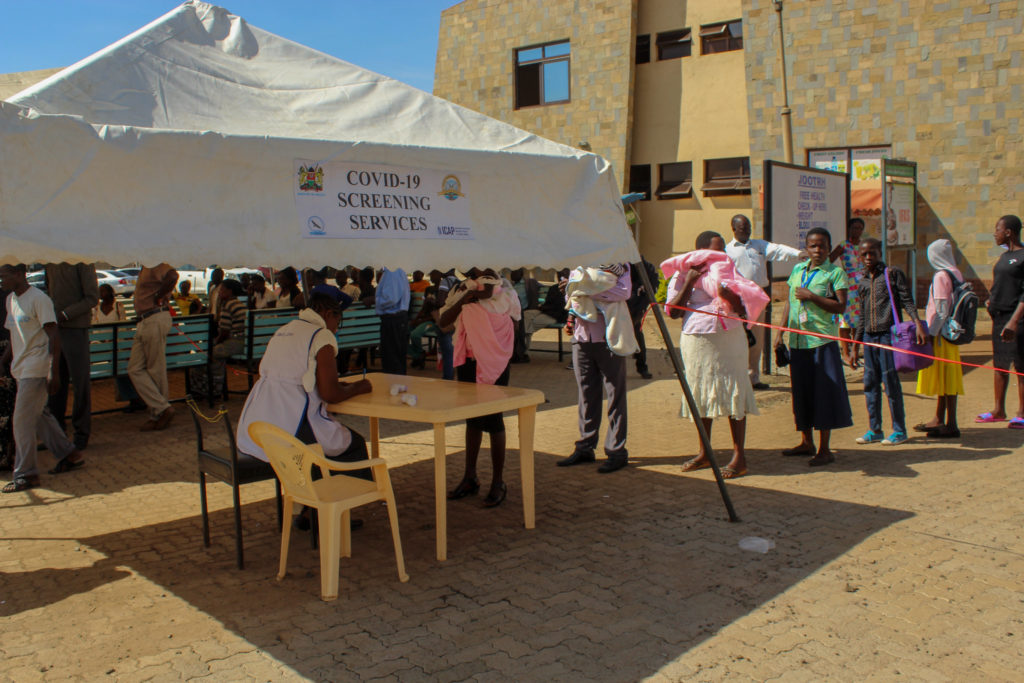
Kenya has only 200 intensive care beds for its entire population of 50 million people – compared to the United States, which has 34 beds for every 100,000 people – so the threat of COVID-19 loomed large. Infection prevention and control was of the upmost urgency to limit the spread of the virus while facilities were readied for what was sure to come.
ICAP in Kenya had a strong foundation to build on. Since 2015, ICAP has supported the Jaramogi Oginga Odinga Teaching and Referral Hospital (JOOTRH) in Kisumu City. ICAP has provided technical support for care and treatment for people living with HIV as well as for JOOTRH’s Gender Violence Center and its new Methadone Replacement Center and Comprehensive Care Center for people who inject drugs. By partnering with JOOTRH leadership and providing technical collaboration, and capacity building and training support, ICAP had already contributed enabling JOOTRH to serve as a center of excellence.
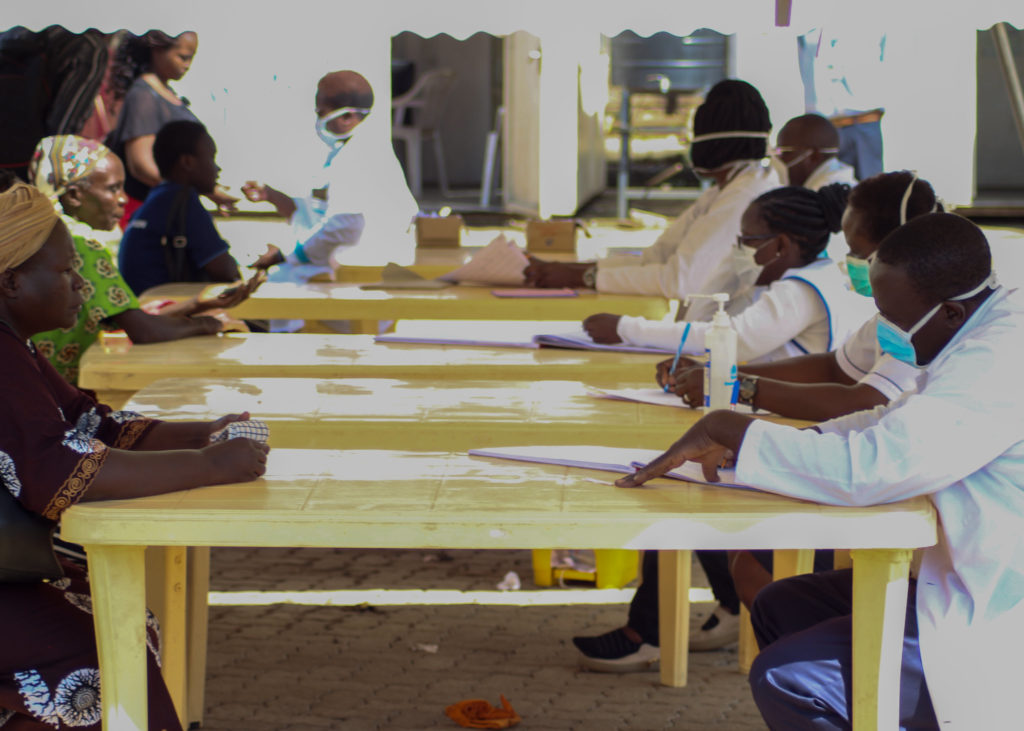 In March 2020, when only 83 COVID-19 cases had been identified in Kenya, ICAP and JOOTRH leadership took the proactive step of establishing a screening and triage center in anticipation of a coming surge. This would build on prior installation of several hand-washing sinks at the JOORTH main gate where incoming patients and staff could wash their hands. Now, ICAP added a series of tents where staff and incoming patients and visitors a day could be screened for COVID-19 as they passed through triage checkpoints to test for symptoms, record travel history and determine if the person should be admitted for further assessment. As the crisis unfolded, ICAP developed a screening app in order to more efficiently collect data on client demographics, travel history, and symptoms.
In March 2020, when only 83 COVID-19 cases had been identified in Kenya, ICAP and JOOTRH leadership took the proactive step of establishing a screening and triage center in anticipation of a coming surge. This would build on prior installation of several hand-washing sinks at the JOORTH main gate where incoming patients and staff could wash their hands. Now, ICAP added a series of tents where staff and incoming patients and visitors a day could be screened for COVID-19 as they passed through triage checkpoints to test for symptoms, record travel history and determine if the person should be admitted for further assessment. As the crisis unfolded, ICAP developed a screening app in order to more efficiently collect data on client demographics, travel history, and symptoms.
By year’s end, nearly 120,000 people had passed through the screening center. While working to control infection and identify people with the coronavirus, ICAP also helped set up a COVID-19 isolation ward inside the hospital, installed washing machines so that bedding, towels and hospital gowns could be laundered within the ward, and established a kitchen so that patient and staff meals could be prepared on-site. ICAP also arranged for patient treatment in this new isolation unit, creating a system for remote care, installing CCTV and setting up an Internet-based system so senior health care professionals could consult with patients face-to-face through tablets.
““This rapid response – the investment in equipment, staff training, and innovative technology solutions that enabled clinicians to provide high quality care remotely as patients progressed from isolation to discharge – prevented a lot of mortality.”
Dr. Gregory Ganda,
Medical Director, Government of Kisumu
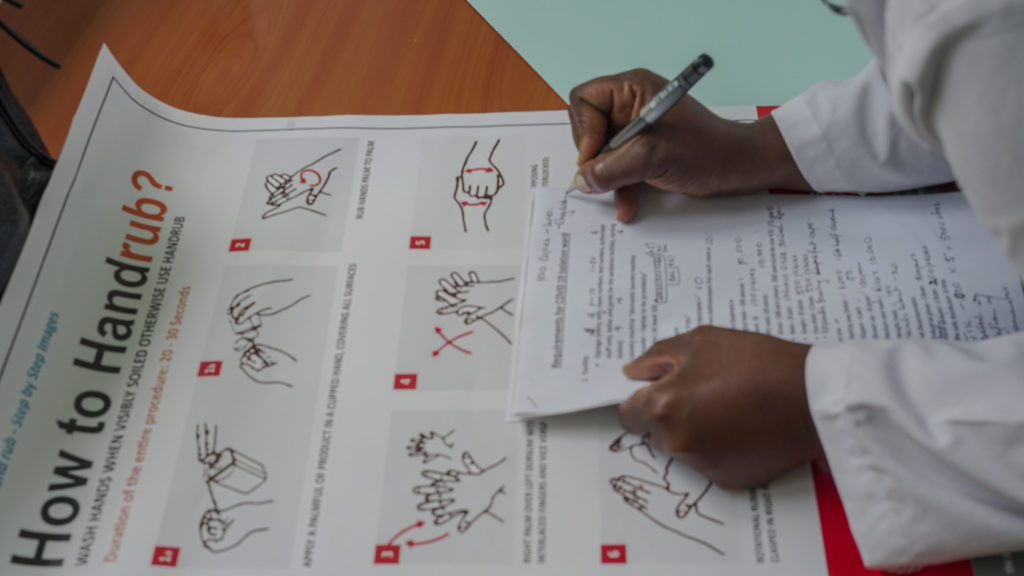 The COVID-19 training needed to be practical and focused. Fortunately ICAP had already established a training platform using ZOOM technology to provide HIV training for regional government health care workers. The ICAP team, together with specialists in the hospital, quickly set up a parallel internet-based training program on COVID epidemiology, diagnosis and treatment. The hospital staff, with technical assistance from ICAP, recorded the training videos for each module, serving as trainers for their peers. Through this partnership and collaboration with government leaders, COVID-19 training was efficiently disseminated to health care workers throughout the county as well as to university medical students.
The COVID-19 training needed to be practical and focused. Fortunately ICAP had already established a training platform using ZOOM technology to provide HIV training for regional government health care workers. The ICAP team, together with specialists in the hospital, quickly set up a parallel internet-based training program on COVID epidemiology, diagnosis and treatment. The hospital staff, with technical assistance from ICAP, recorded the training videos for each module, serving as trainers for their peers. Through this partnership and collaboration with government leaders, COVID-19 training was efficiently disseminated to health care workers throughout the county as well as to university medical students.
Funding: The President’s Emergency Plan for AIDS Relief (CDC) through the Centers for Disease Control and Prevention (CDC) and Zhao Public Health Fund
COLLABORATIVE
PROACTIVE
FLEXIBLE
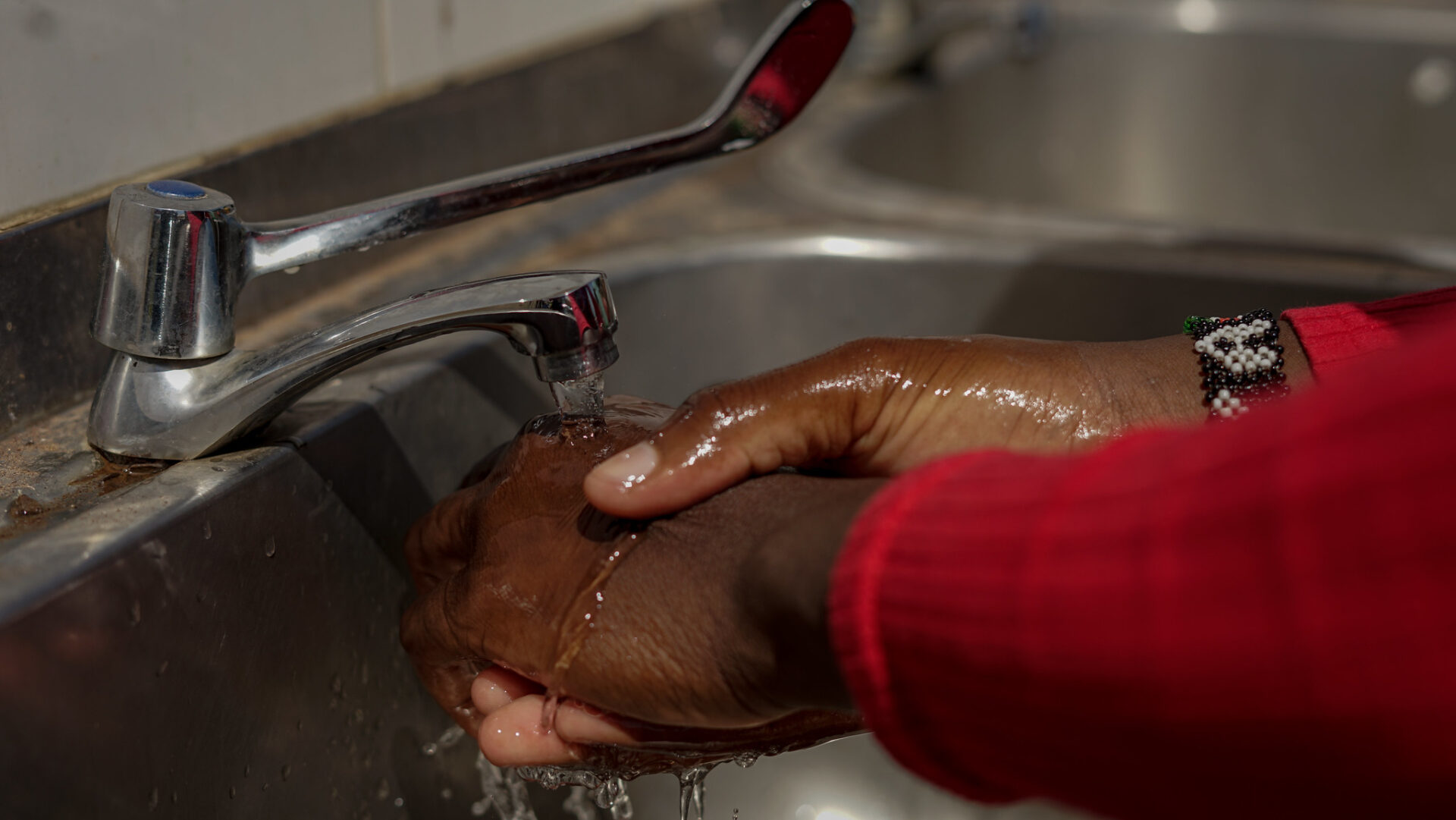
From Conflict to a Responsive Health System
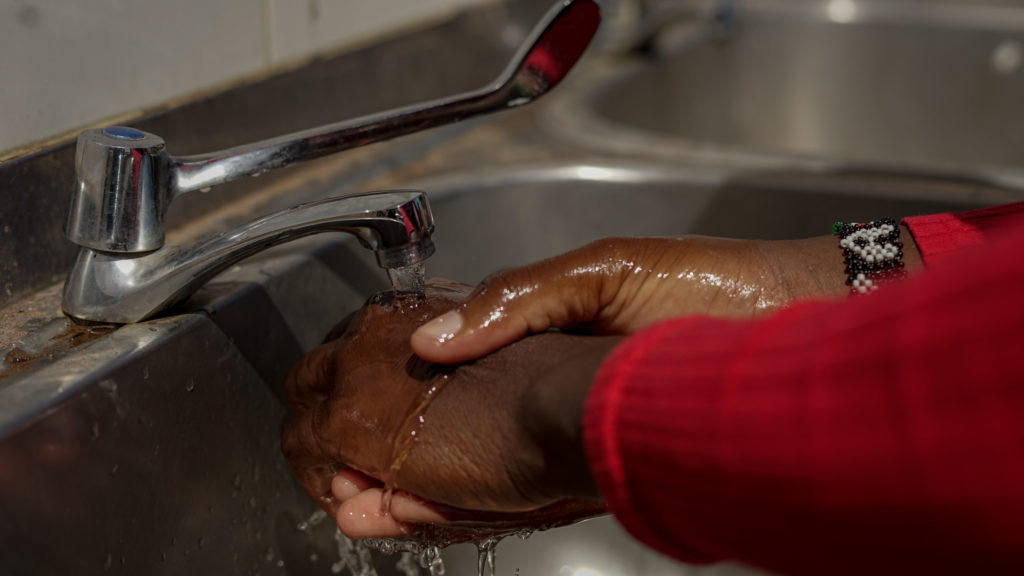 The COVID-19 pandemic arrived in South Sudan less than two months after the establishment of a national unity government on February 20, 2020 after more than six years of civil war that resulted in an estimated 400,00 people losing their lives and displacement of millions.
The COVID-19 pandemic arrived in South Sudan less than two months after the establishment of a national unity government on February 20, 2020 after more than six years of civil war that resulted in an estimated 400,00 people losing their lives and displacement of millions.
ICAP’s established partnership with South Sudan’s Ministry of Health and the US Centers for Disease Control and Prevention (CDC) positioned it to pivot rapidly to contribute to a comprehensive COVID-19 response. Two weeks before the first COVID-19 case was reported, ICAP had already conducted the first COVID-19 training for health facility teams, using the Project ECHO® platform. Once COVID-19 cases appeared, ICAP’s teams engaged rapidly at every level, providing Infection Prevention and Control (IPC), diagnostic equipment, and, most importantly, technical assistance to stand up multiple emergency operations centers. ICAP also provided monitoring equipment so that relevant data could be collected, analyzed, and shared with South Sudan’s National Public Health Emergency Operation Center at the Ministry of Health and the various working groups enabling the coordination of their response.
ICAP also supported development of national training materials on COVID-19 and national case management guidelines, oversight of data management teams, and setup of COVID-19 laboratory systems, including integration with the existing HIV diagnostic systems.
As part of a multi-country partnership with Resolve to Save Lives (RTSL), ICAP also led skill-based in-person trainings on Infection Prevention and Control (IPC) for 43 master trainers and 765 frontline health care workers in the country. The RTSL partnership trained frontline workers who were facing a serious risk of COVID-19 in 13 countries throughout sub-Saharan Africa. In a matter of weeks, ICAP ramped up training efforts to familiarize doctors, nurses, and community health workers on infection prevention and control protective measures as well as providing up-to-date information on the diagnosis and management of COVID-19 cases.
In addition, ICAP is supporting COVID-19 contact tracing activities in Juba County, the capital and epicenter of the pandemic in the country, providing tablets to capture data from the field, and training and deploying 200 contact tracers, and integrating IPC into the contract tracing efforts. As with all of ICAP’s work, the South Sudan model for contact tracing is a community-based, partnership approach. Contact tracers are trained to work with grass roots community structures, including traditional and religious leaders, to build trust with people so they will share personal information about their health and activities, all with the singular goal of helping the entire community stay safer and healthier during the pandemic.
Funding: Resolve to Save Lives
More Impact Stories
Story One
Pivoting to Protect Vulnerable Populations
Story Two
Training Frontline Health Care Workers
As the COVID-19 pandemic arrived in Sierra Leone, ICAP's experience in health care worker training, mentoring and supportive supervision proved to be a critical asset.
Story Three
Researching Biomedical Responses to COVID-19
Recognizing the urgency of developing prevention and treatment responses to COVID-19.
Story Four
Saving Lives with Music
Story Five
Sustaining Methadone Treatment During Lockdown
Story Six
Harnessing Tech to Advance HIV Recency Testing
In the early days of the COVID pandemic, Zimbabwe had low infection rates, and people knew very little about the rapid global spread of the virus.
Story Seven
Surveying the HIV Epidemic Undaunted
Since 2014, the Population-based HIV Impact Assessment (PHIA) Project has been guiding the global HIV response by conducting national representative surveys that chart the state of the HIV epidemic across 15 countries.
Story Eight
Responding to Malaria in Remote Regions
For people who suffer from stigma and fear, including sex workers...
Story Nine
Confronting the Threat of Antimicrobial Resistance
While the rapid spread of COVID-19 continues to dominate headlines around the world, another health crisis looms large.
Story Ten
Connecting Key Populations to Care
For people who suffer from stigma and fear, including sex workers.



